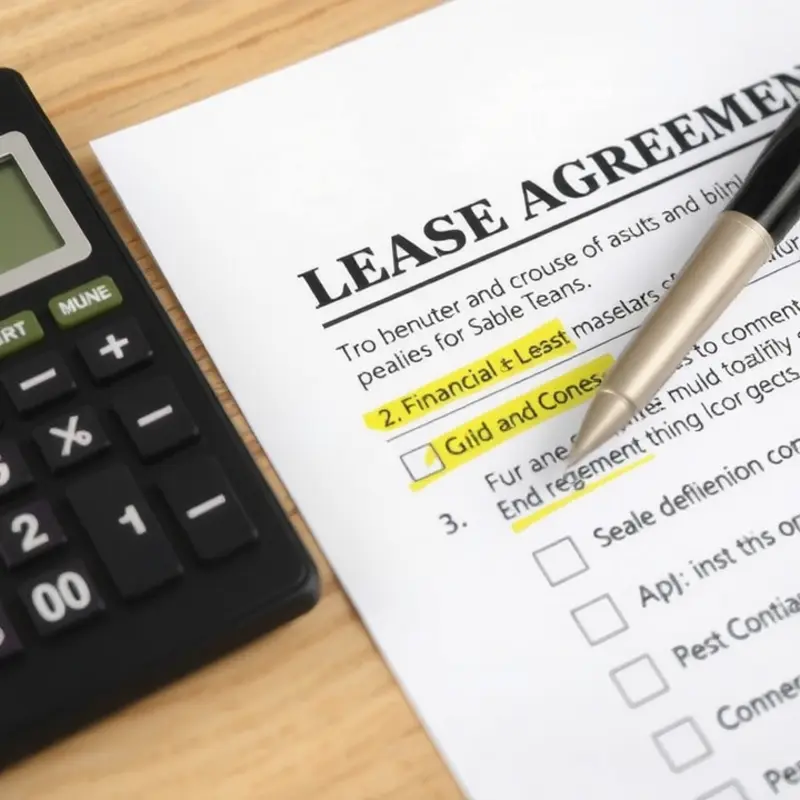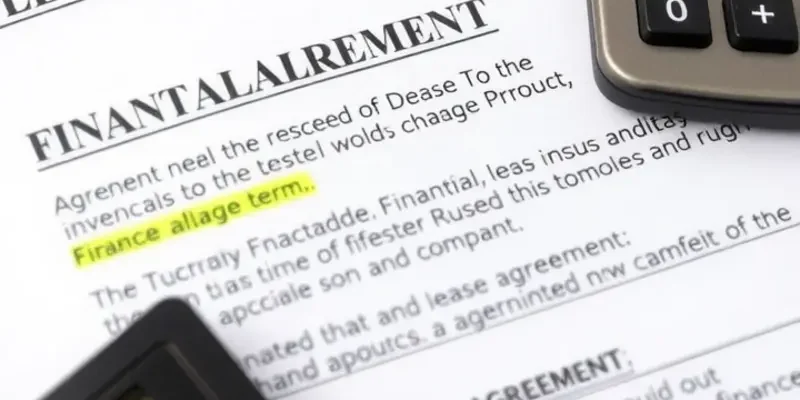Navigating the world of rental agreements can be overwhelming, especially for first-time renters and those new to the leasing process. Leasing is not just about finding a space to call home; it’s also about understanding the financial commitments that come with it. Whether you’re a young professional looking for your first apartment, a student seeking housing, or a couple starting a life together, knowing your lease financial obligations is crucial to avoid pitfalls and ensure a smooth renting experience. This guide aims to demystify lease agreements, covering everything from security deposits to monthly rent, and will equip you with the knowledge to make informed decisions, ensuring peace of mind throughout your rental journey. Let’s dive into the key components that can impact your financial future.
Decoding Your Lease: Key Financial Terms

Signing a lease agreement is a significant step that entails understanding various key financial terms. These terms determine your financial commitment and help avoid unexpected costs. A primary component of any lease is the rent. It’s the monthly fee paid to occupy the space. While this seems straightforward, lease agreements can include clauses that allow landlords to increase rent after an introductory period or under specific circumstances. It’s crucial to clarify these conditions and ensure they are explicitly written in the agreement.
Another important term is the security deposit. This is a sum, usually equivalent to one or two months’ rent, paid upfront as protection against potential damages or unpaid rent. Knowing the conditions under which you might forfeit your deposit is vital. Typically, landlords can deduct costs for damages beyond normal wear and tear. To safeguard your deposit, conduct a detailed walkthrough with the landlord at move-in and document the apartment’s condition.
Leases may also mention additional fees. These can include charges for amenities, maintenance, or late rent payments. Some leases incorporate fees for specific utilities, often referred to as pass-through charges. It’s essential to understand which utilities you’re responsible for, which might include water, gas, electricity, or trash collection. Verify if these costs are fixed or subject to change over time.
The lease might stipulate repair and maintenance responsibilities. Some agreements obligate tenants to handle minor repairs or maintenance tasks, which can quickly add up financially. Clarify which responsibilities fall under your purview to avoid unexpected expenses.
Additionally, the lease may have clauses about lease termination fees. These are charges incurred if you decide to break the lease before its term ends. Understanding the financial repercussions of early termination is crucial. It’s beneficial to discuss potential scenarios with your landlord and negotiate terms if necessary.
Understanding these key financial terms can help young professionals, students, and families manage their rental costs effectively. For further insights into protecting yourself financially when renting, consider exploring this guide on financial protection. Being informed about lease terms reduces the risk of unexpected charges and ensures a smoother renting experience.
Budgeting for Your Lease: Tips and Considerations

Creating a budget that accommodates your rent, utilities, and other leasing expenses is crucial for financial stability. Approaching this with a systematic plan can help balance your spending and prevent financial stress. Here are some strategies to consider.
First, calculate your total monthly income. This includes your salary, any side income, or regular financial support from family. Once you have clarity on your income, it’s time to list your expenses. Rent is typically the primary expense; however, utilities like electricity, water, internet, and other services need to be factored in as well.
It’s crucial to adhere to the 30% rule, suggesting that your rent should not exceed 30% of your pre-tax income. This guideline helps maintain balanced financial health and allows room in your budget for other expenses.
Aside from fixed expenses, anticipate variable costs as well. Groceries, transportation, and personal spending should be accounted for. A well-rounded budget also includes savings for emergencies, which can protect you when unexpected expenses arise, such as sudden repairs or medical bills.
For financial protection while renting, consider exploring resources like protecting yourself financially while renting. This can provide helpful insights into managing your finances effectively.
Utilize budgeting tools and apps to track your spending. These platforms provide insights into your financial habits, highlighting areas where you might cut back. Another helpful tactic is automating your savings. Set up automatic transfers each month to a separate savings account, ensuring you consistently save without additional effort.
Cut down unnecessary expenses. Review your spending on subscriptions, daily coffees, or dining out—areas where minor adjustments can lead to significant savings over time.
Setting financial goals is crucial. Have short-term and long-term objectives that motivate you to stay disciplined. Short-term goals might include saving for a vacation, while long-term goals could be a down payment on a house.
Remember, documentation is your ally. Save all rental agreements, utility bills, and receipts. These records can assist in settling any discrepancies or disputes involving payments or conditions that might arise.
Lastly, engage with your landlord or property manager openly. Communication is key to avoiding misunderstandings, especially in financial matters such as fees or increases in utility charges.
Creating a practical budget for your lease fosters peace of mind and sets a strong foundation for financial wellbeing. With these strategies, you can manage your leasing expenses effectively, paving the way for a richer, less stressful renting experience.
Final words
Understanding your lease financial obligations is essential for navigating rental agreements confidently. By familiarizing yourself with key financial terms and adopting effective budgeting strategies, you can set yourself up for success. Whether you are renting for the first time or are an experienced tenant, always read your lease thoroughly and anticipate the associated costs. This proactive approach will not only safeguard your finances but also enhance your overall renting experience. Embrace your role as an informed renter and enjoy your new home with peace of mind.









